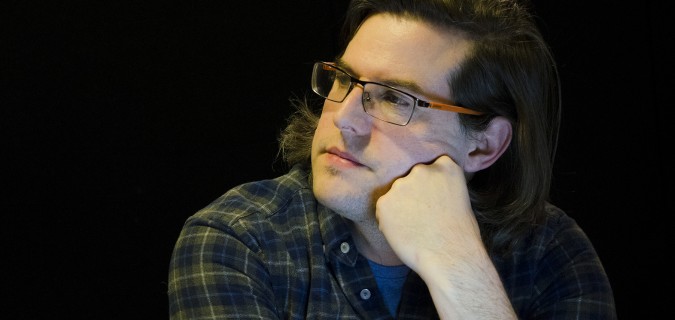Coy Yonce is the Founder and CEO of Mantis Digital Arts, a UX/UI Designer for rich data applications at EV Technologies, and is an experienced product manager who has managed development and marketing for multiple technology products — some generating as much as 42 million annually. Follow him @mantisda.
What is the first thing you did to turn your current business from an idea into a reality?
My goal was to create a game design company that focused on teaching kids topics related to science, history, and mathematics. My first game idea originated after we started homeschooling our daughter and watching “Indie Game: The Movie.” I sketched the ideas for the level on graph paper, quickly scribbled some text on the paper explaining how it should work, and then met with an Entomologist, a professor of animation, and an acquaintance who was a programmer. These meetings resulted in the forming of Mantis Digital Arts. We spent the next nine months building a prototype for our first game.
What is the scariest part of being a young entrepreneur and how can others overcome this fear?
The scariest part for me is having employees who depend upon you for their livelihood. As a small startup, there are times when quick decisions must be made about organizational structure, new project focus, and company direction. Making these quick decisions as an individual is easy. When the results of these decisions have long-term impacts on the financial health of employees, it becomes more difficult. I combat this by being transparent about the financial health of the company and ensuring that everyone understands why changes must happen.
Were you ever told not to pursue your entrepreneurial dreams? Who told you that, what did they say and why did you ignore them?
Not by anyone other than myself. There are times when tough decisions have to be made that I think I should give up and move on. I am guessing that everyone has these thoughts during tough times. I’m driven to continue forward and make those tough decisions through the support of family, friends, and employees. It also helps to reflect on why I started Mantis Digital Arts. By remembering our purpose of creating fun ways to engage kids in learning, I get motivated to continue.
What is the No. 1 thing you wish you’d known starting out and how did you learn it?
I think that the hardest thing to learn was to trust my own instincts. I read lots about how entrepreneurs started companies, I talked with many entrepreneurs, and generally focused on getting lots of advice. While it was great to hear how others had solved some of the problems I was facing and would be facing in the future, I needed to focus more on doing what I thought was right for us to achieve our goals: both short-term and long-term.
What do you recommend all new founders do for their business — or their personal lives — that will help them the most?
Prioritize. I keep a running set of lists of things that I have to do for Mantis Digital Arts, for my day job with EV Technologies, for myself, and for my family. I prioritize these lists so that I work on the most important ones first. Every day, I start by jotting down the top few items from each list so that I have about eight to 10 things to accomplish that day. This ensures that I feel good about what I’ve done for the day and that I’m focusing on things other than work so I don’t forget about personal goals or my family.
How do you end each day and why?
I summarize what I did that day. This allows me to keep focused on doing what’s important. It also lets me see how well I’m predicting how much time each task is going to take or to reshuffle priorities for the next day.
What is your best PR/marketing tip for business just starting up?
When I first started, I was worried that talking about my ideas too early would make our community tired of hearing about them and that potential competitors would run away with them. This was silly. I realized that our community wants frequent updates on how we’re progressing and that this is a great opportunity to engage them. As far as potential competitors are concerned, I don’t really pay attention to them anymore. We focus on doing what’s interesting for us and our audience.
What is your ultimate goal? What will you do if/when you get there?
We want to be an independent game studio that builds beautiful, engaging games. We want them to play our games and then realize that they learned something while reading a book about a similar subject or talking with a parent, teacher or friend. When we get there, we’ll keep improving on it by listening to our audience.













